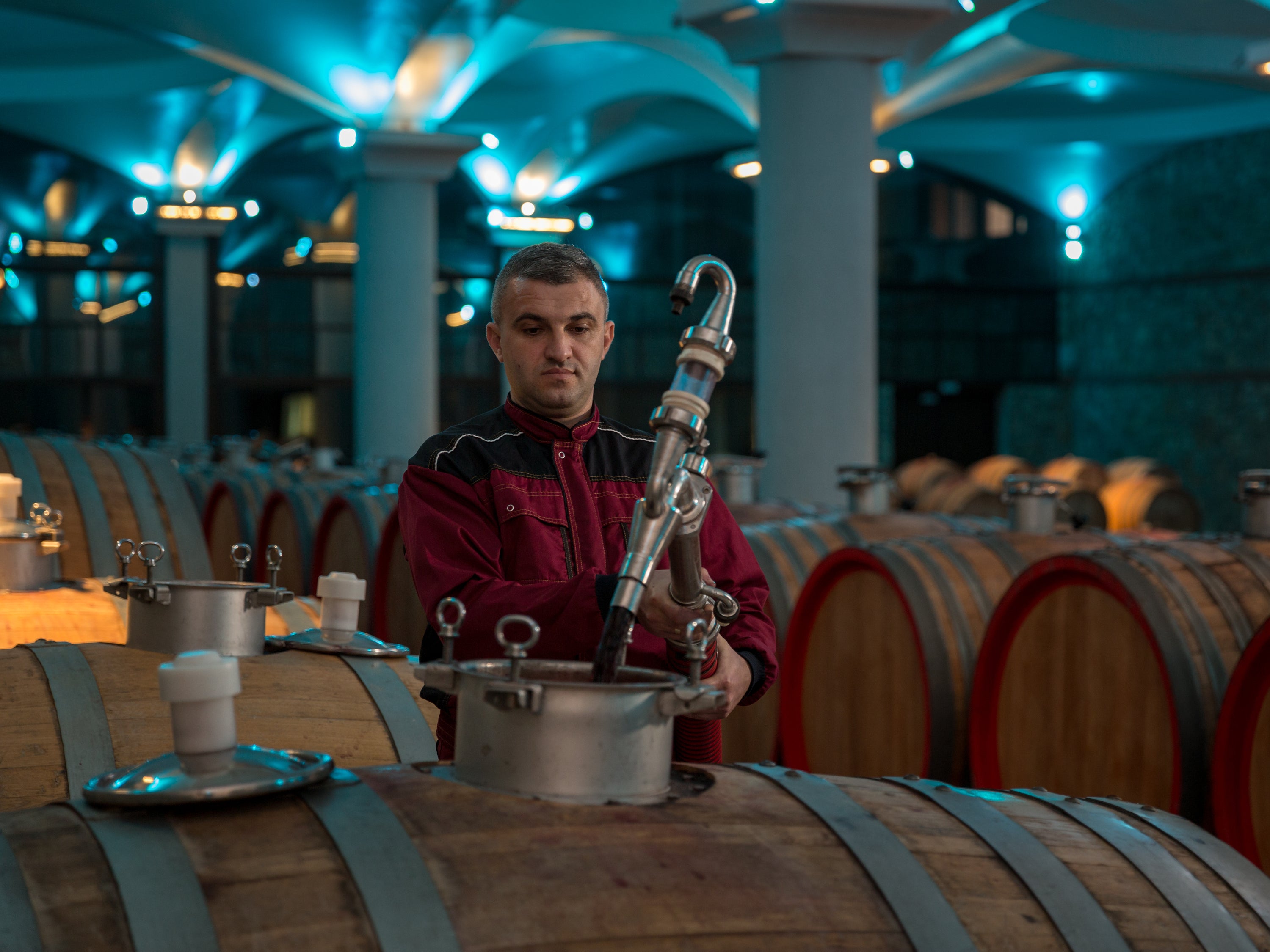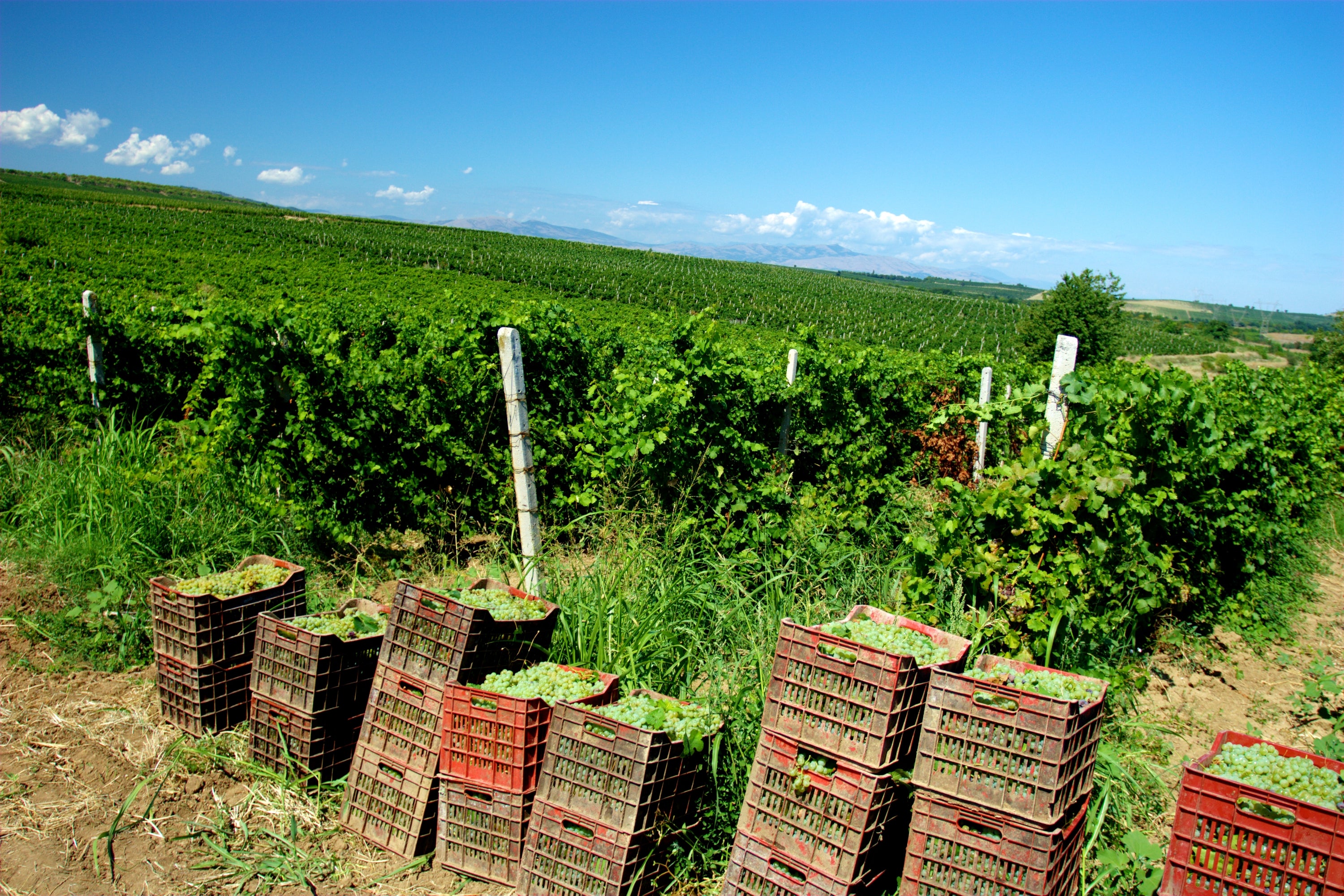Your basket is empty
Already have an account? Log in to check out faster.
Already have an account? Log in to check out faster.
THE WINERY
Founded in 2009 in North Macedonia’s acclaimed Tikveš wine region, Stobi Winery is among the country’s finest modern wine producers. Its vinescape, however, has a much more ancient history. Stobi takes its name from the adjacent archaeological site, an ancient Paeonian city. It was later captured into the Kingdom of Macedon, and, in the 2nd century BCE, the Roman provinces, where it became a local capital. Stobi’s ruins remain a national treasure and major tourist attraction in North Macedonia, with their many structures adorned with intricate mosaics. (One of a peacock gives Stobi Winery its emblem.) They also boast early evidence of winegrowing, with grape presses in the homes, demonstrating the region’s deep rooted history of viticulture.
Today, Stobi Winery continues its dedication to local winemaking traditions, with over half of red plantings across its sprawling 500 hectares of vineyard dedicated to Vranec, the North Macedonian specialty. Beyond Vranec, Stobi Winery boasts an extensive portfolio of wines that showcase the region's viticultural diversity. With meticulous attention to detail, their skilled winemakers craft an array of red, white, and rosé wines, each capturing the essence of the grapes and the terroir. From indigenous varieties like Smederevka and Zilavka to internationally renowned grapes such as Chardonnay and Cabernet Sauvignon, Stobi Winery embraces both tradition and innovation in their winemaking practices.
With an eye toward the future and a commitment to quality, Stobi has significantly invested in new technologies to help usher North Macedonian wine into the 21st century. Among the most globally decorated wineries in North Macedonia, with recognition from Decanter and Mundus Vini, Stobi is a benchmark for both Tikveš and the region at large.
Beyond their commitment to winemaking excellence, Stobi Winery serves as a cultural and educational hub, inviting visitors to immerse themselves in the world of wine. The winery offers guided tours, tastings, and events, providing a holistic experience that celebrates the heritage, artistry, and passion behind their wines.
Stobi Winery

NORTH MACEDONIA
North Macedonia celebrates a proud and ancient heritage of winegrowing. The country’s oldest archaeological findings date evidence of viticulture to the 13th century BCE. North Macedonia’s early history is intimately tied to Alexander the Great of Macedon, who extended the Kingdom of Macedonia far east into Asia and by some accounts met his death by poison at the hands of his wine-pourer. Like the Greeks, the ancient Macedonians worshipped Dionysius, including in the form of the raucous Bacchanal wine festivals (very similar to the Vinalia festivals!). The importance of the Macedonian vineyard flourished into region’s absorption into the Roman Empire, and continued through early Christianity and into the Middle Ages.
The latter half of the second millennium proved more challenging with the expansion of the Ottoman Empire, whose law prohibited the consumption of alcohol, into Macedonia in the 14th century CE. In the 20th century, wine production in Yugoslavia was centralized under the state, and artisanship was sacrificed for quantity. While part of Yugoslavia, Macedonia was a major regional producer of wine, with the country accounting for approximately two-thirds of the Yugoslav wine production. Since the dissolution of Yugoslavia and North Macedonia’s independence in 1991, the wine industry has privatized, with a renewed focus on quality and the country’s native grape varieties.
The Tikveš wine region is found at North Macedonia’s south central border, and is the country’s most important winegrowing area. It is believed that wine given to the armies of Alexander the Great was harvested from Tikveš, near Alexander’s birthplace of Pella (today across the border in Greece). The Tikveš wine region is cornered on three sides by mountains and forms part of the Vardar River Valley. Here, vineyards experience certain moderating effects of the Mediterranean, yet are far enough removed to endure more extreme continental climatic forces. Nearly half of North Macedonia’s grapes are grown in the Tikveš, and the area’s diversity of alluvial, volcanic, and calcareous soils bring complexity to its wines.
